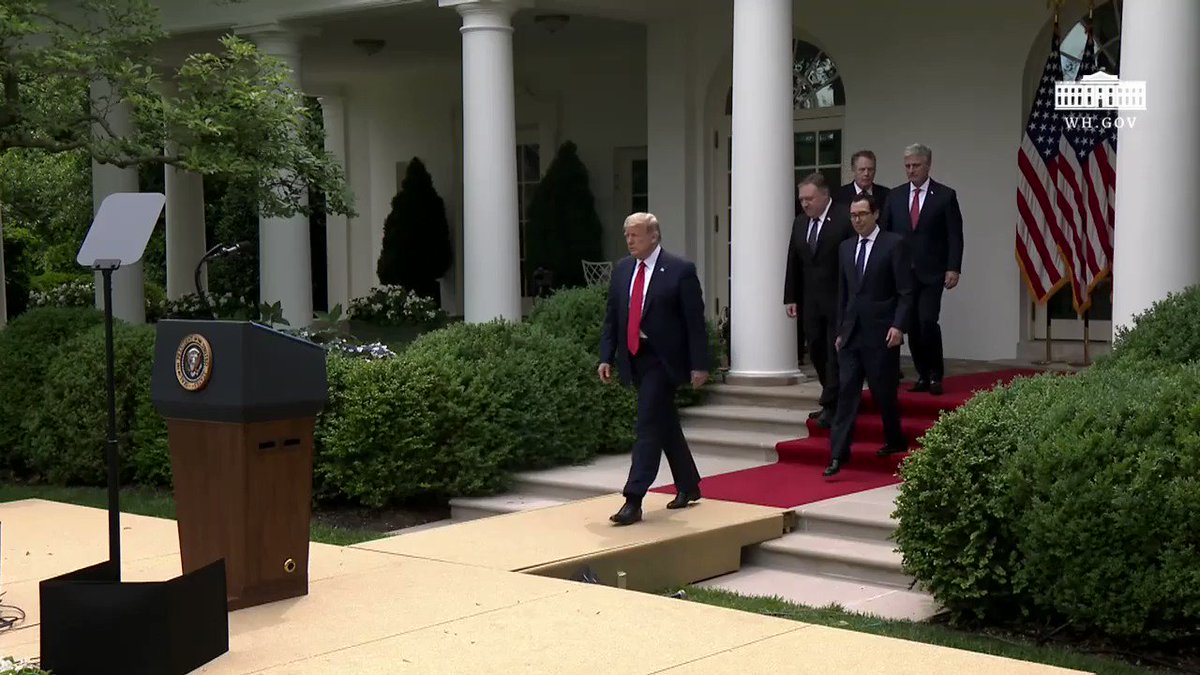Trump already had cancelled many flights to and from China in late January, after the communist government there finally acknowledged publicly the health crisis. For at least a week, and likely longer, it had known about the severity and kept the information from its own people and other at-risk country.
As of Friday, four months since the first confirmed case hit U.S. shores, it has killed more than 100,000—many of them vulnerable elderly nursing home patients or those with pre-existing conditions.
“The world is now suffering as a result of the malfeasance of the Chinese government,” Trump said during the press conference.
Trump had earlier threatened to withdraw from the WHO, criticizing it for its complicity in the Chinese propaganda and cover-up.
“We have detailed the reforms that it must make and engaged with them directly, but they have refused to act,” Trump said.
“Because they have failed to make the requested and greatly needed reforms, we will be today terminating our relationship with the World Health Organization and redirecting those funds to other worldwide and deserving, urgent, noble, public health needs,” he continued. “The world needs answers from China on the virus.”
While Trump left open-ended the possibility of reconciliation with the country, who recently had agreed to renegotiate a major trade deal, the deterioration of U.S.–China relations is likely to continue in the foreseeable future.
China has made increasingly aggressive and territorial overtures recently, including a suppressive crackdown in Hong Kong and an incursion on international maritime borders in the South Sea.
“The United States wants an open and constructive relationship with China, but achieving that relationship requires us to vigorously defend our national interests,” Trump said.
The country also has threatened previously to interfere in the upcoming U.S. election in November and to impose travel sanctions on GOP congressional leaders who have criticized its policies.
Democrats, meanwhile, have faced a dilemma in wanting to reap the benefits of Trump’s Chinese tensions while not appearing too cozy with the foreign rival, which has faced a litany of international criticism for its human-rights abuses, espionage and other hostile measures.
Former Vice President Joe Biden, the presumptive Democrat nominee for president, recently has sought to downplay his own relationship with China while criticizing Trump for having “rolled over” for it.
Biden’s son Hunter had a longstanding partnership with a Chinese state-run equity and investment firm that maintained billions in assets. Although he announced his resignation from its board last fall, as of December the Chinese government still listed him on it.
Joe Biden also is known to have benefited from Chinese donors in several of his pet projects, including a foreign policy center based at the University of Pennsylvania.
No time to read our new, shorter Comments Policy?
It comes down to three words: civil discussion only.




